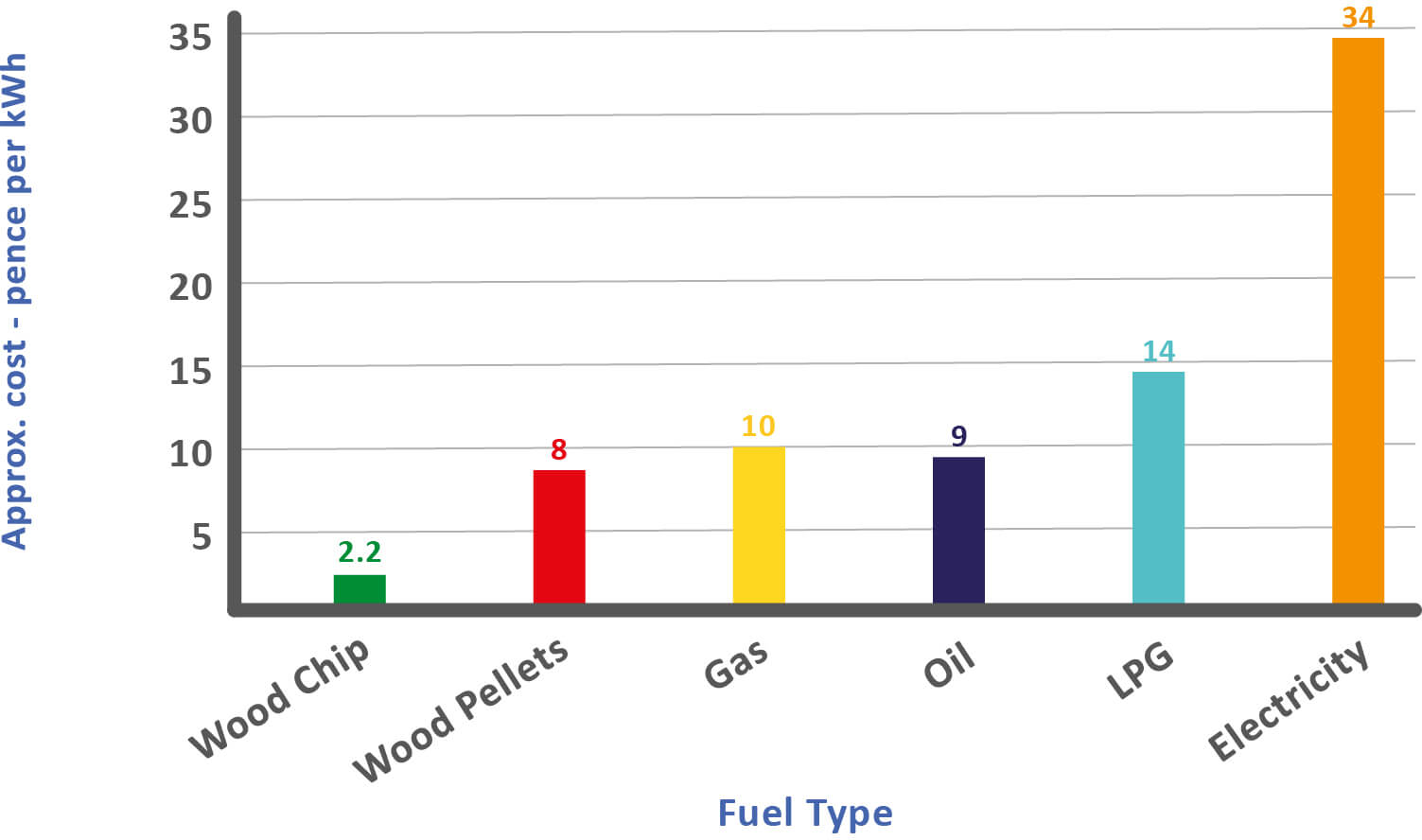
UK businesses have been no stranger to rising energy prices – especially in recent years with the volatile and unpredictable cost of gas, oil and electricity. Biomass, such as wood chip, has become an increasingly popular alternative source of fuel in the commercial and industrial sectors due to many factors. In this blog we explore the financial difference between wood chip and fossil fuels, and also what businesses can gain from switching to wood chip.
Wood chip in comparison to fossil fuel prices*
The major advantage of biomass, especially wood chip, is that it is considerably less expensive today than other forms of fuel (see chart below). The average price of wood chip per kWh is less than half the price of gas and oil, and over 15 times less than electricity!

Wood chip vs Gas = 7.8 pence in savings/kWh
Wood chip vs Oil = 6.8 pence in savings/kWh
Wood chip vs LPG = 11.8 pence in savings/kWh
Wood chip vs Electricity = 31.8 pence in savings/kWh
*These figures are an approximation of savings and have not taken into consideration any inefficiencies of heating systems or boilers used.
Why businesses should choose wood chip
1. Wood chip is considered to be the cheapest form of fuel for heating
Low wood chip prices mean you will be able to save on your heating costs! This will allow your business to have more expendable money to utilise elsewhere in the business other than on those dreaded energy bills.
2. Sustainability
Wood chips are sourced from renewable materials like pallets and processed using a pallet chipper. So it is a renewable energy source, which means that they can be replenished over time. Biomass also contributes significantly less carbon dioxide to the atmosphere than fossil fuels like coal or oil. So not only will you be helping the environment, but you will be showing potential customers and/or investors that you are working towards a greener future.
3. High energy content and improved efficiency
In comparison to other fuels, wood chip has a very high energy content – meaning that wood chip can produce more heat per unit. Biomass boilers are also known for their high efficiency for turning fuel into heat.
4. Utilise waste wood
If your business produces waste wood, you could potentially repurpose your biomass waste for fuel. This will allow you to capitalise on your waste by-product and turn it into fuel for your heating!
If you are looking to switch your business to wood chip, our experts can help as we provide biomass boilers and chippers to the businesses. Get in touch here.